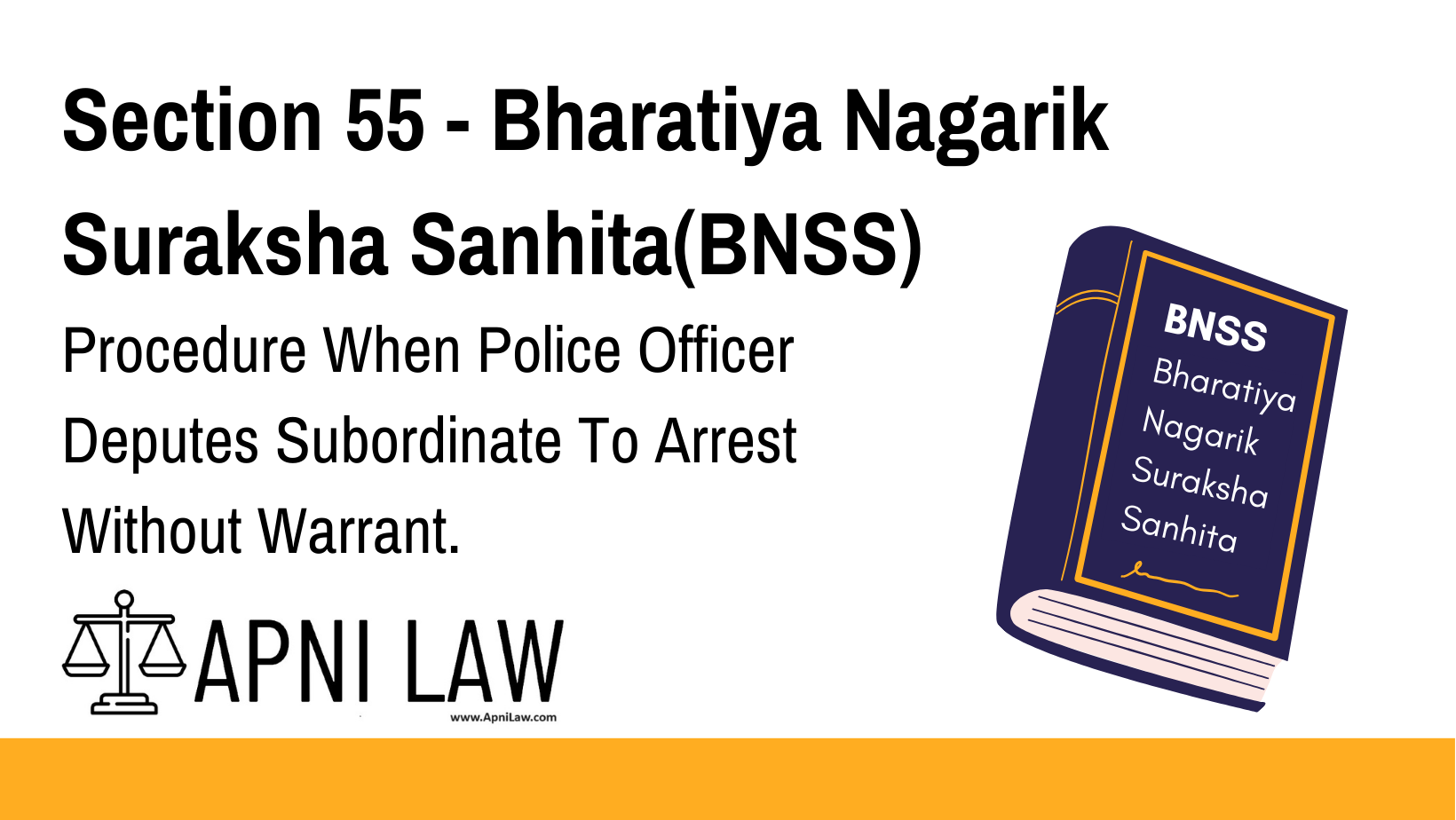Code: Section 55 BNSS
(1) When any officer in charge of a police station or any police officer making an
investigation under Chapter XIII requires any officer subordinate to him to arrest without a
warrant (otherwise than in his presence) any person who may lawfully be arrested without
a warrant, he shall deliver to the officer required to make the arrest an order in writing,
specifying the person to be arrested and the offence or other cause for which the arrest is
to be made and the officer so required shall, before making the arrest, notify to the person
to be arrested the substance of the order and, if so required by such person, shall show him
the order.
(2) Nothing in sub-section (1) shall affect the power of a police officer to arrest a
person under section 35.
Explanation of Section 55 BNSS
Key Provisions
- Written Order Required for Delegated Arrests
- A superior officer cannot verbally order a subordinate to make an arrest without a warrant.
- The order must be in writing and include:
✅ Name of accused
✅ Reason for arrest (offence committed)
- Notification Before Arrest
- The subordinate officer must inform the accused about:
✅ The reason for arrest
✅ The existence of a written order
- The subordinate officer must inform the accused about:
- Right to See the Order
- If the accused asks, the police officer must show him the written order.
- Independent Power Under Section 35 BNSS
- This section does not limit the power of a police officer to arrest under Section 35 BNSS.
Illustration of Section 55 BNSS
Example 1: Lawful Arrest with a Written Order
Case: A Superintendent of Police (SP) directs a sub-inspector to arrest a suspect for fraud. He issues a written order specifying the suspect’s name and crime.
✅ Legal Arrest – The sub-inspector follows the procedure and informs the suspect before arresting him.
Example 2: Illegal Arrest Without a Written Order
Case: A police inspector orders a constable to arrest a person for theft but does not provide a written order.
❌ Unlawful Arrest – The constable must have a written order before arresting someone.
Example 3: Accused Demands to See the Order
Case: A subordinate police officer arrests a person. The person asks to see the written order, but the officer refuses to show it.
❌ Violation – The officer must show the order if requested.
Common Questions and Answers on Section 55 BNSS
1. Can a superior officer give a verbal order for arrest without a warrant?
❌ No. The order must be in writing.
2. What details should the written order contain?
✅ The name of the accused and the offence committed.
3. Can the accused demand to see the order?
✅ Yes. The officer must show the written order if requested.
4. Does this section apply when the arrest is made in the presence of a senior officer?
❌ No. This applies only when the senior officer is not present.
5. Does this section limit the power of police under Section 35 BNSS?
❌ No. Police officers can still make arrests under Section 35 BNSS.
Conclusion
Section 55 BNSS ensures:
✅ Written authorization for delegated arrests
✅ Transparency in police arrests
✅ Protection of accused persons’ rights
For more legal insights, visit ApniLaw! 🚀










